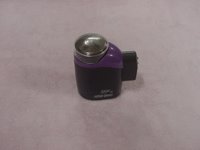The kiabai, subway salespeople
To my embarrassment I have only now learned the native or in-group term for the wandering salespersons in the Seoul subway system, kiabai, even though I was staying in Korea on a long-term basis at the time when the phenomenon was common. A kiabai salesperson in the Ddanzi Ilbo article linked below explains that word is coined from the English "gear" and "buy".  Ddanzi Ilbo on metro salesmen, making the association in the genuine ddanzi manner between the pobusang of the old Korea and the kiabai of the "IMF era" and post-IMF Korea. Ddanzi also gives "seven reasons why the kiabai are the venture (pench'ô) warriors" Ddanzi Ilbo on metro salesmen, making the association in the genuine ddanzi manner between the pobusang of the old Korea and the kiabai of the "IMF era" and post-IMF Korea. Ddanzi also gives "seven reasons why the kiabai are the venture (pench'ô) warriors"첫째. 이들은 울 나라 근대 상업계를 주름잡았던 보부상과 방물장수의 역사적 전통을 잇는 창조적 계승자다. '사농공상'이라 하여 상업을 천시하는 울나라 특유의 열악한 환경에서, 이들은 꿋꿋하게 물류매매의 최전방에서 활동하며 강인한 상인정신의 숨결을 전한다. Monthly Donga (Sindonga) (Dec/1999) on "freelancers without a shop"; a detailed description of the activity. 재미있는 건 기아바이라 해서 무조건 쫓아내거나 잡아갈 수는 없다는 점이다. 무임 승차를 한 것도 아닌데 팔 물건을 갖고 있다는 이유만으로 범법자 취급을 할 순 없는 일. 객차 안에서 단가를 치고 있거나 돈을 거두고 있을 때에만 단속이 가능하다. 이를 누구보다 잘 아는 이들은 한창 단가를 치던 와중에라도 낌새가 이상하다 싶으면 재빨리 구석으로 물건 상자를 밀어 넣고 그 위에 털썩 주저앉아 버린다. ‘나 지금 장사 안 했다’는 표시다.
Kiabuy ; a site which imports merchandise from China and elsewhere for the kiabai traders. Actually the name of the company is Dasan (茶山) International Corporation. Dasan... Of course I can't be sure if the company has a connection to a geographical location called Dasan (Tasan), but that word most likely will bring to mind the early 19th century scholar Chông Ya-gyông, whose pen name was 茶山. It's said that Tasan was not as "progressive" in his economic thinking as others normally known as sirhakp'a, Practical Learning, as he did not advocate the expansion of commerce and manufacturing. At least he reserved a second-to-last place for commerce (商) in the Confucian order of the four occupations (officials-farmers-artisans-merchants/sa-nong-kong-sang 士農工商) instead of the customary last (James Palais: Confucian Statecraft and Korean Institutions, U. of Washington Press 1996). Categories at del.icio.us/hunjang: businesskeepers ∙ self-employment ∙ |




Comments to note "The kiabai, subway salespeople" (Comments to posts older than 14 days are moderated)
Write a Comment